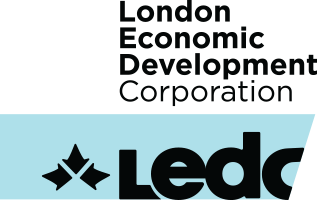London, ON – Three Western projects will share in nearly $1.2 million in new funding from the Natural Sciences and Engineering Research Council of Canada (NSERC) to support early-stage research ranging from fuel cell development and salmon repopulation to added-value farm operations.
The NSERC Strategic Program Grants are designed to increase research and training in areas that could strongly influence Canada’s economy, society or environment over the next 10 years.
The first successful project, led by Mechanical & Materials Engineering professor Andy Sun, received $410,000 to develop novel, graphene-based carbon nanomaterials that will be used as electrocatalyst support for low-cost, high-durability fuel cells.
Nanotechnology-based solutions – which involve studies at the scale of one billionth of a metre – are increasing recognized as having the potential to profoundly affect energy production, storage and utilization, including for hydrogen generation, batteries and solar cells. Working with T.K. Sham, Sun’s research will also help increase the global competitiveness of Ballard Power Systems, Inc., which is an international leader in fuel cell development.
Commercial and sport fisheries are also key industries in Canada’s Great Lakes region. In fact, more than 65 million pounds of fish are harvested from lakes annually, contributing more than $1 billion to local communities; however, fisheries have been declining in large part due to human activities.
Biology professor Bryan Neff has received $499,700 to produce the first comprehensive scientific evaluation of three stocks of Atlantic salmon approved for reintroduction into Lake Ontario. Neff uses a quantitative genetics approach to understand the conservation and the architecture of fitness of Atlantic salmon, and will collaborate with a number of government and industry partners while reintroducing salmon to the Great Lakes.
Chemical & Biochemical Engineering professor Amarjeet Bassi will work with Ajay Ray and partner with Stanton Farms in Ilderton, Ontario to help farmers extract the maximum value from their operations. As part of the project, Bassi will explore biodiesel production from microalgae – a process that involves cultivation of microalgae on nutrient-rich wastewater from livestock operations – and capture CO2 from stack gas from biodigester operations.
This is significant because livestock operations produce wastewater rich in nutrients and organic matter, but modern farming practices emphasize a ‘closed-loop’ approach to operations to avoid unnecessary costs, and regulations prohibit farmers from simply ‘land-farming’ wastewater slurry from their livestock operations. Bassi, who received $250,000, hopes to establish new directions and understand challenges in large-scale, integrated micro-algal technologies for the Canadian farm economy.
Media contact:
Douglas Keddy, Research Communications Manager, 519-661-2111 ext. 87485, [email protected]
Welcome to London, Canada.


